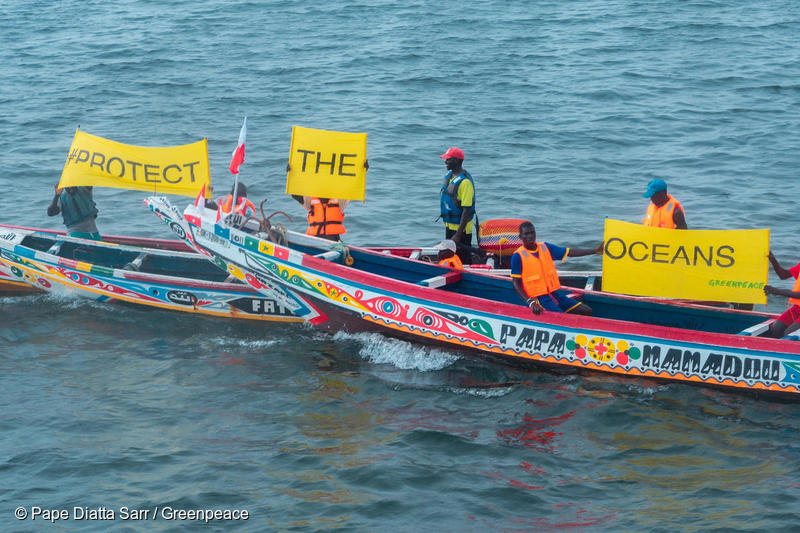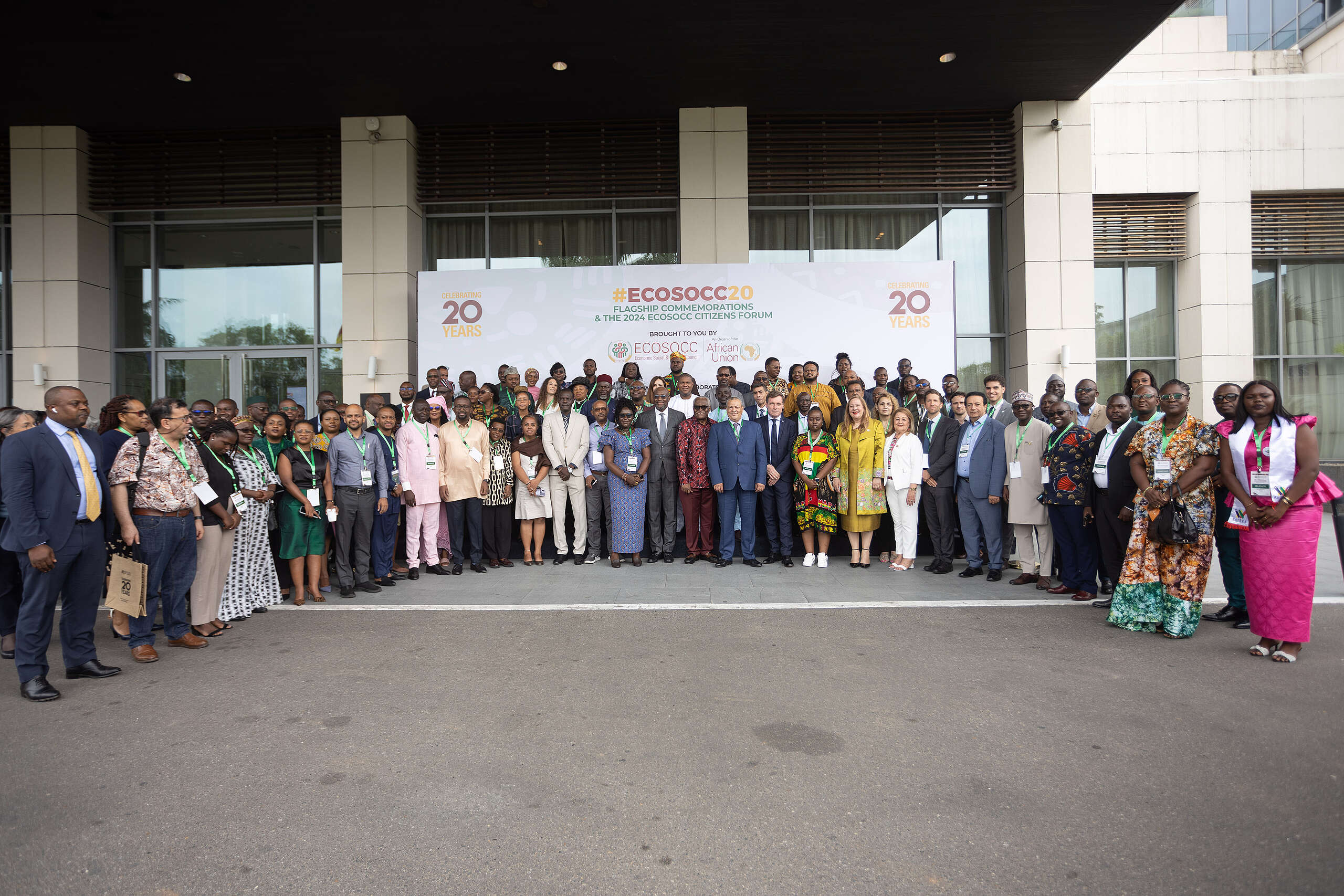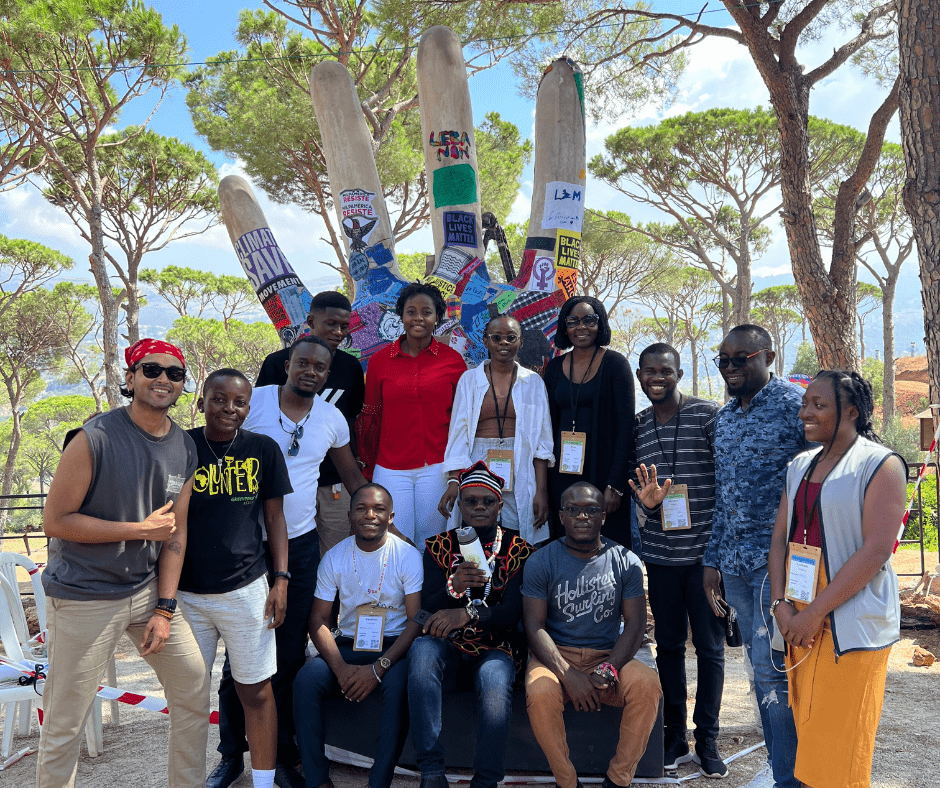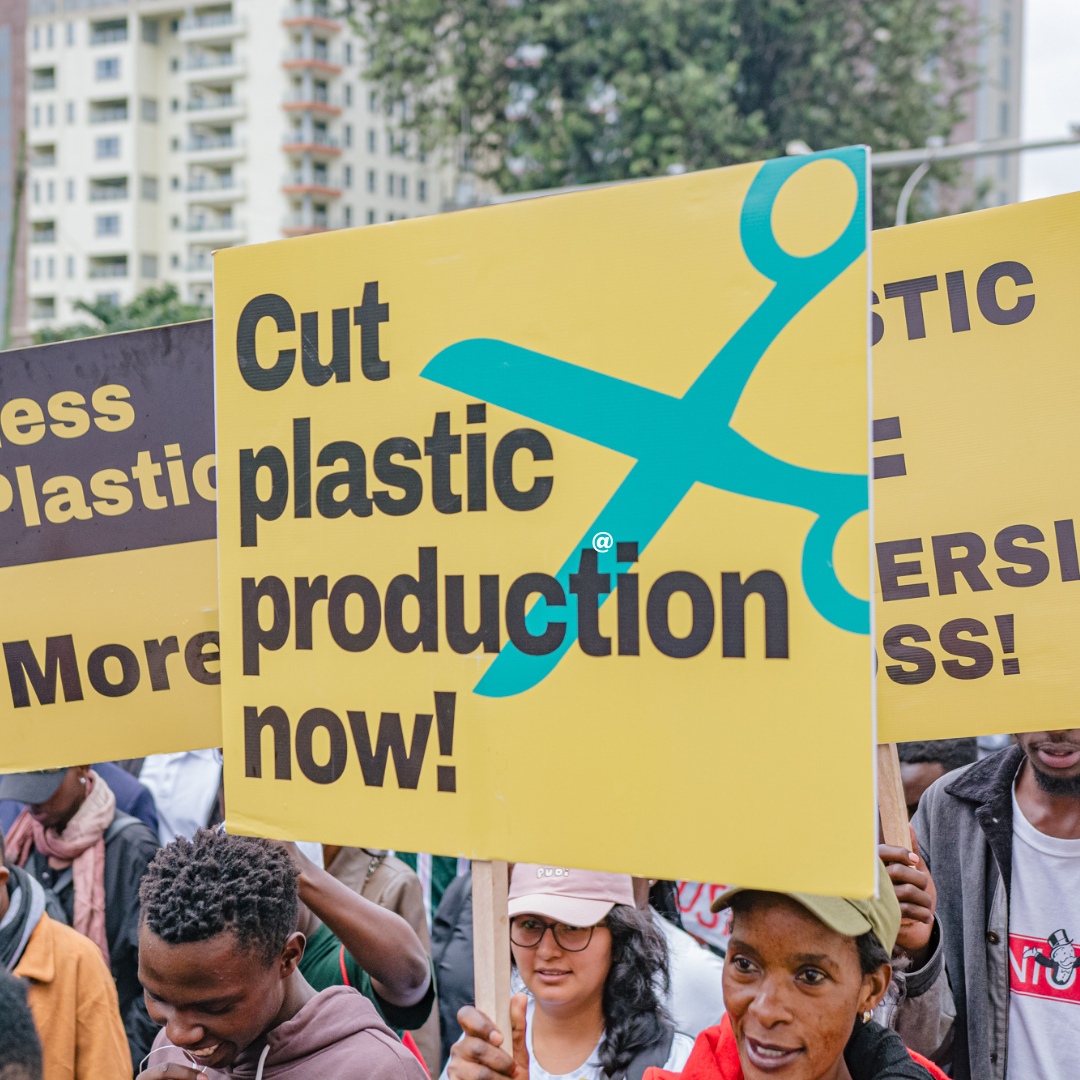It’s easy to feel pessimistic about the state of our oceans. In the coastal waters of Senegal; in the seas of Chana District, Thailand; in the ocean around the Indonesian island of Sangihe; and around the world, trawlers steal fish and industrial fishers use aggregating gear to plunder fish populations. On Sangihe, gold mines scar the land and pour pollutants into the sea. In Senegal, fishmeal factories pollute and they drive the illegal demand for fish. In Chana, a huge industrial zone and deep sea port could cover a pristine ecosystem with concrete.

You might think this wave of marine destruction is unstoppable. And it’s horribly normal for the global media to portray fishing communities and the indigenous peoples of coastal regions as passive victims.
But that’s not the reality. We’re seeing this on 21 November 2023, World Fisheries Day, when small-scale fishing communities from Indonesia, Thailand and Senegal are delivering letters to their government representatives, in order to demand action – now. They’re asking the authorities in their countries to support their plans for bigger and better marine reserves in coastal waters.
Community members have also called for governments to sign and ratify the Global Oceans Treaty. And these communities are organising some inspiring photo opportunities to draw attention to their activities, with fishers from the Sangihe and Chana posing with their beautiful painted fishing boats. These represent the jobs, traditions, culture and community that they have vowed to defend. Meanwhile, fish processors from Mbour, Senegal, are posing with empty calabash bowls in one hand, and with their other hand raising their fists in their air: trawlers are stealing their fish, food and jobs, but they won’t stop struggling against a deeply unfair food system and the corporations that back it up.
So what does all that mean in detail? It means that coastal communities are demanding the right to work with the authorities in their region, so they can manage the fish populations in the waters that their community has fished sustainably for many generations. They want to use traditional and sustainable methods to do this, and of course that means getting rid of industrial overfishing.
But these communities aren’t waiting for the authorities to act. They know that a lot of the time, big business and politicians collaborate to stop regulation, or to stop regulation being enforced. So fishers are taking back control, as we can see in a gentle but inspiring new video that Greenpeace is releasing for World Fisheries Day. In Chana district, the community has constructed artificial coral reefs using sustainable local forest materials, and these help fish populations to recover. In Senegal, fishers monitor for illegal trawling and either confront wrongdoers or inform the authorities. And the community of Sangihe Island has taken their legal case all the way to the Supreme Court – and for the moment, they’ve won.
Across the coastal regions of the world, small-scale fishing communities have lived in harmony with the oceans for generations. Their employment, their access to food and their deeply held traditions and cultures are intertwined with the ocean. Very often they are facing terrible threats not only from trawlers but also from the construction of coastal industry that will pollute land, air and sea.
So, yes, they’re angry. But they’re not giving up. They’re demanding ocean justice. So share their story with a friend, and support these communities to fight back.



